White Sweetclover Information – Learn How To Grow White Sweetclover Plants
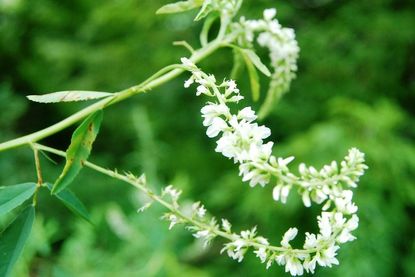

Growing white sweetclover is not difficult. This weedy legume grows readily in a lot of conditions, and while some may see it as a weed, others use it for its benefits. You can grow white sweetclover as a cover crop, to make hay or pasture for livestock, to break up hardpan, or to enrich the nutrient content of your soil.
White Sweetclover Info
What is white sweetclover? White sweetclover (Melilotus alba) is a legume that is biennial and often used in farming. The plant has a big root system and deep taproots. Although it is called a clover, this plant is more closely related to alfalfa. White sweetclover will grow to about three to five feet (1 to 1.5 m.) in height, and the taproot extends nearly as deep into the soil. As a biennial, white sweetclover produces white flower stalks every two years. Reasons to grow white sweetclover include using it for hay and pasture. If you keep any livestock, this is a great plant for your pasture and for making hay for winter feed. As a legume it can fix nitrogen to the soil, so white sweetclover is also a popular cover crop and green manure plant. You can grow it in your garden between seasons and then till it into the soil to increase nutrient content and to improve the structure of the soil. The long taproots break up soil that is hard and compact.
How to Grow White Sweetclover
While some people consider white sweetclover to be a weed, others grow it for pasture, tillage, cover, and green manure. White sweetclover benefits may suit your garden, and if so, you can grow it easily. It tolerates a variety of soils, from clay to sandy, and will also grow in a pH environment from six to eight. Thanks to its big taproot, white sweetclover will also tolerate drought well once it has become established. Until then, water regularly.
Gardening tips, videos, info and more delivered right to your inbox!
Sign up for the Gardening Know How newsletter today and receive a free download of our most popular eBook "How to Grow Delicious Tomatoes."

Mary Ellen Ellis has been gardening for over 20 years. With degrees in Chemistry and Biology, Mary Ellen's specialties are flowers, native plants, and herbs.
-
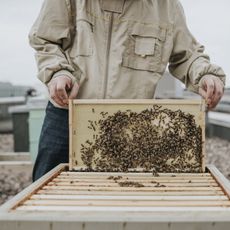 Urban Beekeeping Guide: Top Tips For Raising Bees In The City
Urban Beekeeping Guide: Top Tips For Raising Bees In The CityUrban beekeeping can be a rewarding and appreciated pastime, but first be sure it’s legal in your city and learn the ropes of beekeeping.
By Mary Ellen Ellis
-
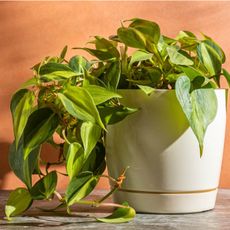 2024 Plant Of The Year: Why Experts Say Philodendron Is The “It” Plant Of The Year
2024 Plant Of The Year: Why Experts Say Philodendron Is The “It” Plant Of The YearWe aren’t surprised that philodendron was designated the plant of the year. Versatile, easy-care and lovely, it’s the houseplant of the year 2024!
By Bonnie L. Grant
-
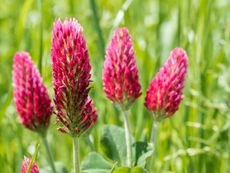 Best Late Summer And Early Fall Cover Crops
Best Late Summer And Early Fall Cover CropsPlanting cover crops is a gift you can give to your garden’s soil. Read on to learn about planting cover crops in late summer.
By Bonnie L. Grant
-
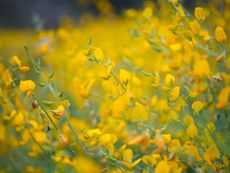 Sunn Hemp Plant Info – Learn Sunn Hemp Uses And Care
Sunn Hemp Plant Info – Learn Sunn Hemp Uses And CareSunn hemp grass is a warm weather grass. Click to learn more about Sunn hemp uses as well as helpful tips on growing Sunn hemp as a cover crop.
By Mary H. Dyer
-
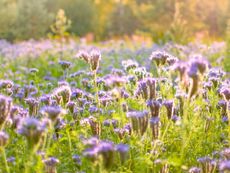 Native Cover Crops: Vegetable Cover Cropping With Native Plants
Native Cover Crops: Vegetable Cover Cropping With Native PlantsAre there any benefits to using native plants as cover crops? Click here to learn more about vegetable cover cropping with native plants.
By Laura Miller
-
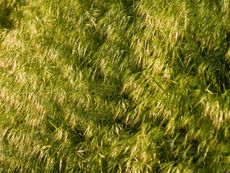 What Is Field Brome – Information About Field Brome Grass
What Is Field Brome – Information About Field Brome GrassField brome grass can be used as a cover crop to control erosion and enrich the soil. For more information, click the following article.
By Laura Miller
-
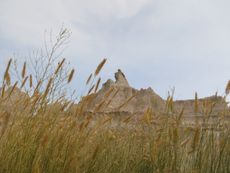 What Is Western Wheatgrass – How To Grow Western Wheatgrass
What Is Western Wheatgrass – How To Grow Western WheatgrassWheatgrass is native to North America and graces the Southwest, Great Plains and mountainous regions of the western U.S. It has some erosion control benefits but using western wheatgrass for grazing is the primary purpose. Learn more about it here.
By Bonnie L. Grant
-
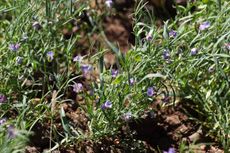 What Is Chickling Vetch – Growing Chickling Vetch For Nitrogen Fixing
What Is Chickling Vetch – Growing Chickling Vetch For Nitrogen FixingWhat is chickling vetch? Also known by various names such as grass pea, white vetch, blue sweet pea, Indian vetch, or Indian pea, chickling vetch is a nutritious legume grown to feed livestock and humans in countries around the world. Learn more about the plant here.
By Mary H. Dyer
-
Establishing Kura Clover: Learn How To Grow Kura Clover Plants
You no doubt have heard about the four-leaf clover, but few gardeners are familiar with kura clover plants. Kura is a forage legume and if you are interested in growing kura as a groundcover or establishing kura clover for some other use, this article will help.
By Teo Spengler
-
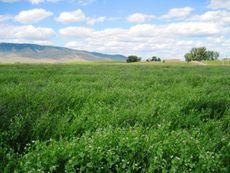 What Are Austrian Winter Peas: A Guide To Growing Austrian Winter Peas
What Are Austrian Winter Peas: A Guide To Growing Austrian Winter PeasWhat are Austrian winter peas? Also known as field peas, Austrian winter peas have been grown around the world for centuries, primarily as a valuable source of nutrition for humans and livestock. Click this article for info on growing Austrian winter peas.
By Mary H. Dyer